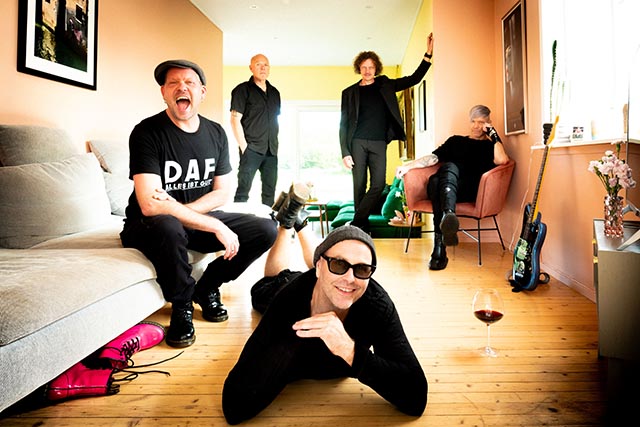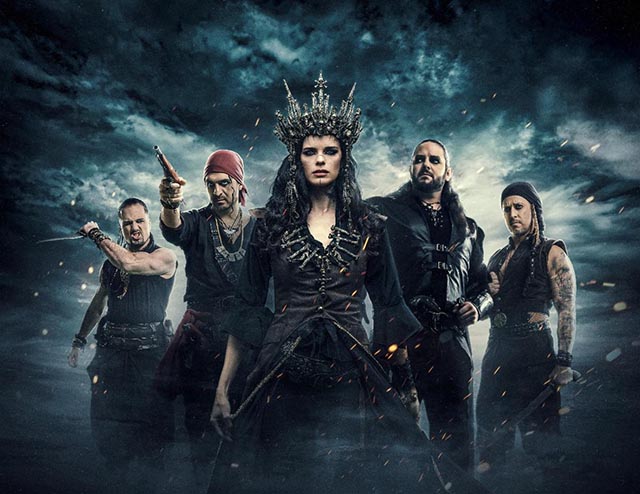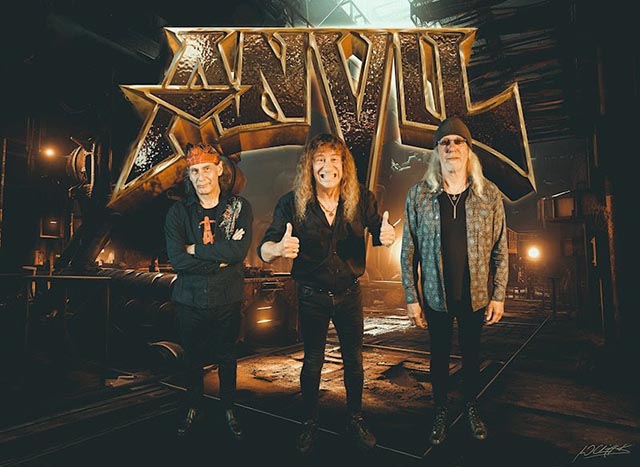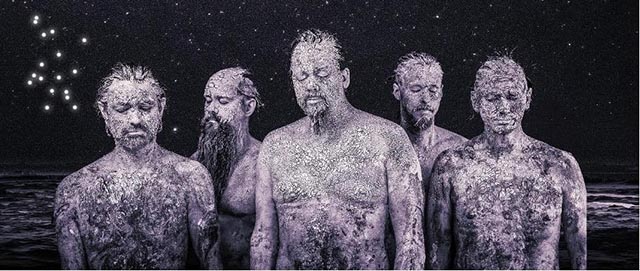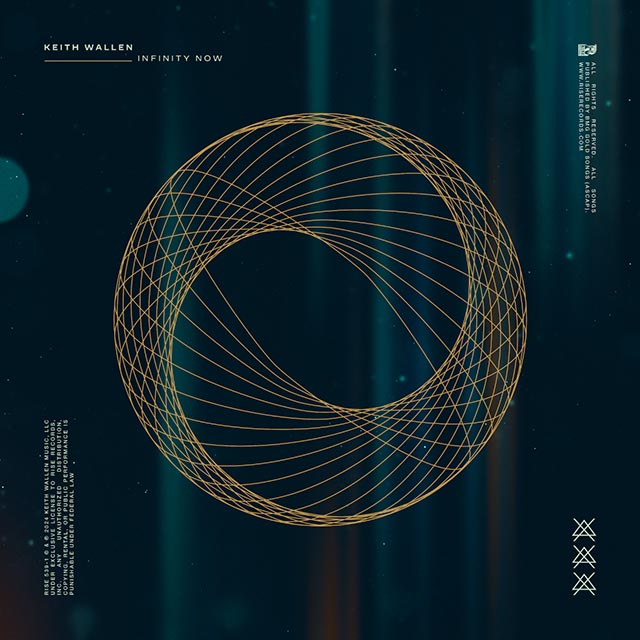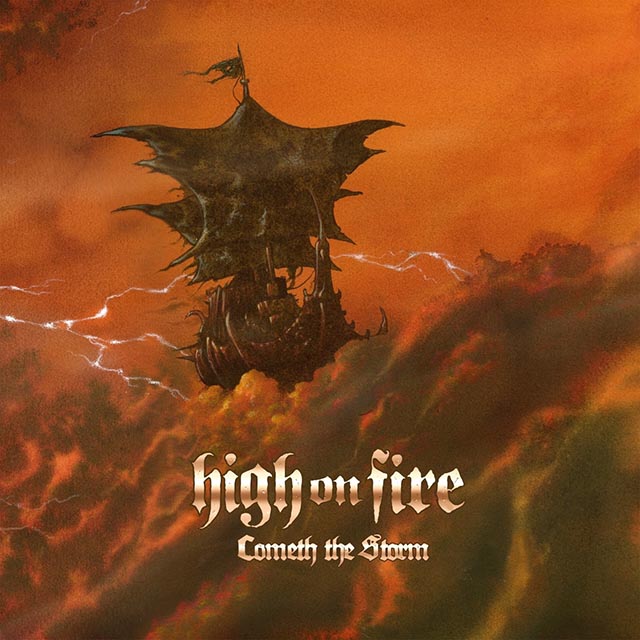“Seigmen is one of the few bands in this world that carry the gold standard of quality, integrity, and authenticity that all bands should aspire to reach.” ~ Kark of Dødsengel
Norway’s revered Seigmen will unleash their latest studio album, Resonans, on May 3 via Oslo’s celebrated Indie Recordings. The follow-up to Enola (2015), Resonans represents a long-awaited gift that many feared might not happen. Fortunately, Seigmen has emerged from their struggles as strong as ever. Stamped with the mark of true brilliance like Seigmen’s other offerings, Resonans is sure to prove an instant classic. This innovative masterpiece both delivers what fans want from Seigmen and promises to blow their minds with thrilling surprises, such as the finale, “Tønsberg.”
Founded in 1989 as Klisne Seigmenn, the band adopted their current name in 1991. Seigmen consists of bassist Kim Ljung, frontman Alex Møklebust, guitarist Marius Roth Christensen, guitarist Sverre Økshoff, and drummer Noralf Ronthi. Seigmen’s albums feature some of the very best atmospheres and productions one could hope to experience. As a thoroughly objective music expert, I must say: I find Seigmen to be the most rewarding and worthy rock band. Seigmen even counts Crown Prince Haakon among their fans. They performed with the prince at his 40th birthday celebration.
Seigmen famously earned a Spellemann, or “Norwegian Grammy,” in the “Best Rock Artist” category for Metropolis (1995), which was included in a special 2020 vinyl box set by Karisma Records with Total (1994) and Radiowaves (1997). Seigmen has received other forms of official recognition, such as the Vestfold Fylkeskommunes Kunstnerpris and Kassettavgiftsfondets lanseringsstipend. They even had the honor of becoming the first rock ensemble to perform at the Oslo Opera House, where Roth Christensen is completing his service as an award-winning tenor with the Norwegian National Opera.
We were fortunate enough to have the opportunity to speak with Kim Ljung about Seigmen and more. In addition to being a top-notch bassist, Ljung is an equally magnificent composer, lyricist, and vocalist. Outside of Seigmen, he is also known for his superb work with Zeromancer and Ljungblut. Since our interview, Ljung has recorded some new Ljungblut songs, which will appear on his next cassette, with Terje Johannesen at Frodeløkka Studio. Without further ado, please enjoy the result of our discussion with the iconic master himself.
Congratulations on the upcoming release of Resonans. I know you began the songwriting process in 2015. Could you please take me through it a little bit?
Yes, the way we work is that all the songs start with me as a songwriter and lyricist. I usually start writing the songs with just an acoustic guitar playing in two or three strings. It’s not very complicated. The songs always start off with the title. That’s how I like it because it gives me kind of the whole picture of how the songs should be. I guess it’s kind of a weird way of starting the song off, but that’s the way we do it. I lay out the songs, and then I kind of do a demo with drums and the whole idea from A to Z. And then, I show it to the band after a while. Sometimes, I start off with just a riff and test it. But usually, I do the whole song before I take it to the band. They usually give me the thumbs up, and we come together in the rehearsal studio. And then, we kind of measure it out because we are good friends, I mean, that’s kind of the whole idea of Resonans. It’s about friendship and how we’ve managed to keep together for 33 years, which is crazy, I think. It’s the same five people. We know each other so well, and we know how we work together. There’s never any arguments about… Well, there’s arguments, but there’s no aggressiveness. We never leave the rehearsal studio as enemies or with animosity. The rehearsal studio is what’s important to us. I mean, yes, I’m writing the songs, writing the lyrics, and everything. But, you know, what’s really-really important is how we manage to kind of arrange the songs in the rehearsal studio because we’re always really dependent on each other. We trust each other really well, and we know our strengths and weaknesses.
Does Alex ever change your lyrics at all?
Oh yeah, me and Alex have a really special bond. It’s really nice because we work together with Zeromancer as well, and we’ve done this for so many years. We just know each other so well. So, I kind of instantly know what he’s up to and if there’s something he doesn’t, you know… Because he’s singing it, and he has to really mean it. I never ever explain what the lyrics are about to him because it’s so important to him that he expresses them the way he wants to. It’s really hard writing lyrics in Norwegian, I think. It’s difficult because, I don’t know how to explain it, but it just sounds kind of awful if you pick the wrong words. We always use the words as kind of an instrument. Since day one, the vocals were not the thing that should be in the middle and very loud. They had to be on the same level as the instruments. When I started writing lyrics with Seigmen, Alex told me: “No, you can’t use that word.” Or: “No, that sentence is too long.” And then, I had to chop off the sentences and just put them to the music in a sonic way. And then, all the meaning of the sentence was gone, but that made the way of writing for Seigmen different, if you know what I mean.
I do. And I love Seigmen’s lyrics, and, well, everything about Seigmen. But, yes, you can sit and keep contemplating the lyrics, and you never tire of them. Each time you listen, more possibilities just keep unfolding, and that’s really magical. Maybe this is a silly question, but do you have any lyrical inspirations? Your texts just seem to be completely from within you.
That’s a good question. Yeah, of course I do. When I was at school, I started writing the lyrics. I didn’t pay so much attention to the class, and I was sitting back there and writing the lyrics. I guess back then, in the early days, the inspiration would come from other artists and music. But later on, inspiration came from everything. I use everything in life as inspiration. I read a lot of books. I’m reading a lot of Norwegian authors. I think there’s so much good literature in Norway, and I think that my biggest inspirational input comes from just reading books. I start the day by reading a book and having my coffee, and I end the day falling asleep with a book. So, that calms me a lot.
Who are your favorite authors?
There’s quite a few. There’s an author called Per Petterson, who you should check out. And there’s a guy called Jon Fosse, who I just started reading because he’s writing in what’s called Nynorsk, which is like a dialect that I think is kind of hard to read. But now, I’ve figured it out, so I read quite a few books by him. He got the Nobel Prize in Literature last year. And Knausgård.
Yes, I was too lazy to read My Struggle, but I listened to it all on audiobook and some of his other stuff.
Alright, excellent because… You’re in Britain, right? [Knausgård lives in London.]
No, I’m in New York, so I guess I’m from where the Zeromancer Orchestra of Knives cover photo was taken by your grandfather while lying in the back of a hearse — that was such a cool story that you shared.
Yeah, that’s funny. I just thought it was a cool photo because it was not perfect. And then, I spoke to some parts of my family from the town that he came from, and they told me about the hearses that they were driving in and how they took that picture. I didn’t know that story until after I showed them the cover, and they told me. It’s just so funny, and it resembles my grandad really well.
We’ll get back to Seigmen in a second, but I obviously love Zeromancer as well, so I’d like to ask: What are your plans with that band right now?
It’s been difficult for us because we’ve been kind of indisposed for four years first of all due to the Covid situation.
I saw you had to cancel concerts with both Zeromancer and Seigmen, but you just got back onstage with Seigmen in December. You played your first two gigs in about four years. I was very-very jealous looking at all of the pictures on Instagram.
Yeah, we had some people coming over from the States as well. It’s crazy, we have one fan that always travels from Boston. It’s just for the show, and then he goes back again. But, yeah, we had to cancel a few shows. We actually thought at some point that the album, Resonans, was never going to see the light of day because of health. Alex has had a really serious condition, and that’s also what made us indisposed for four years. We’ve booked shows in Norway for the summer, and that’s why all the focus is on Seigmen now. It’s a drag for Zeromancer because we really wanted to do Zeromancer shows as well. We’ve had a lot of inquiries about us coming especially to Germany because that’s where our booking company is, but we had to turn them all down because we don’t have the time to do both bands at the same time now. It just takes a lot of focus. Yeah, the plans for Zeromancer are a little bit vague, I must say. We weren’t able to tour with Orchestra of Knives. It’s been sad, but we have our hopes. We have some plans for Seigmen after Resonans, you see, which I can’t really explain, but there’s more. We have a real good drive here, so we just have to continue with Seigmen for a while and then see what’s going to happen with Zeromancer. We have songs with Zeromancer that aren’t recorded but written. So, we have things to do.
That’s really great. So, as you said, you have a lot of awesome shows coming up with Seigmen like Midgardsblot and Tons of Rock. What are you most looking forward to about your upcoming dates, and does performing the material live maybe give you a different understanding of the songs in some way?
Yeah, all the songs, like I said to you, have come together in the rehearsal space. Sunday, this week, we will rehearse again. We’ve rehearsed the new songs from the album. It’s kind of not hard because it’s written. It’s not like we have to invent the whole thing. It’s just about doing it over and over and over. So, I wouldn’t say it’s fairly easy, but it comes very natural. We’ve put the songs into the setlists, and it melts. But when we play at festival shows, we know we have a certain time, and obviously people don’t want to hear the new stuff. I think we’re going to have two or three songs in the festival set, and the clubs are going to have five or six maybe. The first show we’re going to do is actually at a really small club called R.I.P., which is in a city an hour and a half from here. It’s just 150 people. We’re looking forward to that. It’s going to be packed and sweaty like the old days, and that’s the first show we’re going to do now.
“Elskhat,” for example, really evolved over time. Was there a lot of rewriting going on for the other songs as well?
Yeah, on this album, we’ve played around a lot with arrangements and tonality, which we don’t usually do. But we’ve taken into consideration that Alex has spoken up this time, and he said: “Maybe it would be easier for me if you put it in a note that I’m comfortable in.” We’ve done so with several tracks like the last song on the album, “Tønsberg,” which is a kind of a homage to our home city. I’m really-really anxious regarding what people are going to say about it here. The song is kind of a split. Marius, who is an opera singer, in that song has the A-part, and Alex just has the B-part, kind of the band part. Alex set the tonality right for Marius and then for himself. So, the song actually changed tones from the A- to the B-part, which was really weird in the beginning, but, when you do it over and over again, it’s just natural. So, there’s several songs, if you go back and listen to how they were in the beginning, that are quite different in tonality, but, arrangement-wise, they are pretty similar to the demos, actually.
Marius is incredible. It’s so cool that he’s an opera singer. Of course, your albums have a lot of the best productions. You and Alex produced Resonans. Were there any production challenges, or did everything kind of go smoothly?
Well, production-wise, what I would say is that when we took the songs from the rehearsal studio to the recording studio, it just felt so right this time because we didn’t want to overdo it. So, we had three songs during the first session, and we travelled to the studio where we recorded Total in ’94. We hadn’t been there with Seigmen since that time, but we were there with Zeromancer in ’99 doing demos. We thought it would change a lot. When we came back there, it was just even better. It’s very, what I would say, kind of an American type of studio. It’s just cozy… It’s just different, not a very Norwegian type of studio. It’s not like clean and minimalistic. It’s just packed with gear and has this certain atmosphere. We were home in an instant, and we knew it was the right place. We felt the vibe from the Total album, and recording three songs just felt right because we had so much focus on them. We were there for just four days the first time and then came back and worked on the next three songs. I think we had four sessions, and it was just so rewarding.
Alex and me have the bigger picture that makes us work closely after the recording session with the overdubs and what’s missing in the songs. We were certain that all the songs were going to be mixed by other people than Alex. This time, he didn’t want to mix this album. He mixed Enola. So, we started with the “Berlin” song. We sent it to a Swedish mixer that we really had faith in, but it came back really bad. We felt maybe the song was not good enough, and then I told Alex: “Please give it a try?! Now, we know what we don’t want, and we know what we want.” So, this album started out with him mixing that track, and he mixed “Blasfem” as well, which is very-very different and an eleven-minute song. Some songs were mixed by Adam Noble in England. And some songs were mixed by an American called Mike Hartung, who lives in Oslo. We know him from previously. I think that sending the right songs to the right people gave the album a certain depth. It’s been a long process, but it’s also been a fast process in the end. It was just that the process from the first riffs of “Elskhat” to laying the last stuff on the album took a long time. That was due to us being busy with the Zeromancer album Orchestra of Knivesand some Ljungblut stuff that I’m working on, and then the Covid situation, and then Alex getting sick. But when we started the mixing, it was fast. It was like suddenly it was all ready for release, and we were just overexcited. Never thought it would happen.
Total is now 30 years old. A book about it [by Even Smith Wergeland] came out last year. I wish that I could read it, but I can’t really understand much Norwegian. So, I hope that it will be translated one day. Anyway, is there anything you would like to say about Total and working with Sylvia Massy on that album and also Metropolis, which, of course, won the Spellemann Award?
Yeah, the Total album is really magical to us. A lot of things were going the right way, and we kind of found our shape, you know, the whole band came together. We did great stuff before that as well. Album-wise, we were asked by the record company if there was a producer that we wanted if we had the chance to get any producer. They were really surprised that we had a woman on top of our list. She said yes because of the album Ameneon [1993]. And then, we went into that studio, the same studio I was talking about. For one day, we recorded the whole album Total in a live setting, and we sent her those songs. The songs were already there, but she did amazing things with the production. After that, we learned so much. The spirit in the studio was crazy. She was just so energetic, and we were too. It was just a kindergarten. She invited us to LA for the Metropolis album, and it was an adventure. Those years were really-really motivating for us. Looking back at it, it feels very close to us because we play those songs a lot in the rehearsal studio. When Total finally came out on vinyl, that was just really special. And the book that you’re mentioning, it’s nice that you do that because it was written by a young guy, or, I mean, younger than us. A lot of his connection with us is that he saw us live in 1994 at a festival close to where he lived, and that’s his take on the book. I really-really like the book because it’s not just about us. It’s about that era. He goes deep into talking about the ’90s and other music, other artists. He speaks about music that I never thought about myself. It’s funny because he writes in the same dialect as Jon Fosse, the author I was talking about. He was actually the entrance into that dialect for me because I had to read this book. That gave me insight and made me realize that Nynorsk is a really nice way of reading. So, I hope that somebody translates that book for you.
I can nag a few people to help me out, but it should be translated for a greater audience as well. This past December, Karisma released that really cool set of three vinyls [Rosa, Gul, and Beige]. Seigmen is 35 this year [at least, if you count from the Klisne Seigmenn days], and each vinyl has a really old track that you revisited and recorded for the first time in the studio, and, obviously, there were live tracks as well. Otto Egil Sætre helped out a lot with that. Would you like to comment at all on those vinyls?
Yeah, it’s cool that you mention them as well because I brought them up actually because I want to talk about them. I came into the band in 1989. The story is that I came to the rehearsal studio, which was an old submarine base in Tønsberg, where we live. Alex, and Sverre, and Noralf were there, and they wanted to show me five songs that they were going to play in December. This was the fall. They were playing these five songs with two guitars and drums. I was invited because they needed a bass player, and they knew that I was playing bass. Marius came along because he was my friend. We were in a band together, and he was a little bit jealous. He wanted to hear them as well, and it was just crazy because there was something that was so special about that day and those songs that they were playing for me. It hit me so hard. I was just blown away by the depth and the heaviness of the songs. The lyrics were just really cool, but they were childish… But it was just so in-your-face. That’s the key moment for me with Seigmen, when I was invited into this. Later on, I took over the pen. Those five songs have always been really important to me, even though they’re kind of stupid in their way, but I wanted the band to record them. Alex was just like: “Do we have to do it?” I said: “Yeah, we have to do it.” And then, he said: “Can we please just release it on vinyl and not do it digitally?!” And I said: “Okay, that’s a promise.” “So, if you just do it on vinyl, then it’s okay.” Even Sverre was sharing the job of being a lyricist back then. I’ll never forget that moment. Again, Marius was tagging along. He was like: “Can I join the band?” And we were like: “Well, you know, we have two guitars already.” And then, stupidly enough, I mean, we were fans of Turbonegro at that time: They were like a type of grunge band, and they had three guitar players. We went to a show, and they were playing with three guitars. And then, we said: “Okay Marius, you can join the band.” So, I think it was important for him as well.
Your “one for all and all for one” philosophy is really interesting to me because I think that your vow not to allow any lineup changes is really rare. So, Seigmen will always be the same people, and you disbanded for a while when Sverre decided not to continue. Is there anything you would like to say about staying true to the core five?
Yeah, it’s really just the way it has to be with Seigmen. It’s us as five individuals, and we’re friends, and we’re close. But it’s also about what we give each other, it sounds a little pompous, but as musicians. If we’re in the rehearsal studio, and we rehearse some new songs, and we’re missing Marius, or Sverre, or Alex… It’s just so vital that it’s the five people because the sound of each member is so important. I think that’s what made the sound of Seigmen. You hear so well what the others are doing. The guitars are always in a kind of harmonic way to each other. I guess we said it all along, and we really meant it… When Sverre said back in 1999 that he was just he was tired, and he wanted to have some space, we said like: “Okay, that’s really sad.” We had so many songs that we wanted to do, but, of course, we were true to our own slogan, you know. He said: “Well, we can just do this tour, and we’re never going to play again together.” That was it, and we were really-really bummed out. We never thought it was going to happen again. That was why we left so early. We were in a deep depression, really. We had to go somewhere else, and we went to the States and started Zeromancer. I’m really glad that we came together five years later with Seigmen and started off again. But it’s still the same thing: If one drops out, he’s not going to be replaced, I can assure you that. It’s all about friendship, really.
Speaking of the States, you shared a story on Instagram that Anthony Kiedis asked: “Are you in a band?” So, you gave him a copy of Total, but I was just like: “Who cares about Anthony Kiedis?! I’m interested in your stuff.”
You know, that was a funny moment. It was just across from Grandmaster Records on Cahuenga Boulevard in Los Angeles, and we were just having a bite at a Thai restaurant called Chan Darae. He was in there, and he was the energetic one: “Are you guys in a band?” It was so obvious, you know. Another thing that we remember well from Los Angeles was that Alex and me went into a shop in Hollywood to try to get a Norwegian flag because we were going to celebrate our National Day, and there was this woman… You know, Americans are open. They want to know what you’re doing. She was like: “What are you guys doing?” And we were like: “Well, we’re musicians. We come from Norway, and we want this Norwegian flag.” And then, she asked us: “How old are you, and what kind of music do you do?” And we told her our age and said that we were rock musicians. And she went: “You’re 30-year-old rockers?!” She thought that was so old, and we use that a lot. Now, we’re 50-plus. We’re still doing it, you know. We feel that we get away with it, and we have the same passion, and we have the same integrity we had back then. So, it’s very rewarding being in a band. For us, it’s just a privilege, a bonus, to have the opportunity to come together as friends, be creative together, make art, and release it, and now, after so many years, show what we’ve been doing for all that time. People think we’ve been away, or we didn’t work with Seigmen for many years, but the truth is that we work with it every day all the time. My head’s spinning because of ideas. We’ve had the patience for many years for this moment to release this album.
I’ve noticed that a lot of black metal people are really-really drawn to Seigmen, and this is something you mentioned during one interview. I know that Kark of Dødsengel, for example, loves Seigmen. The same goes for black metal historian Finn Håkon Rødland. Shining’s Niklas Kvarforth has said that part of the reason why he wears gloves onstage is Seigmen. He has the best Seigmen cover ever. How do you feel about Shining’s take on “Ohm”?
Right, you know, that’s cool. I must go back and listen to it again because it’s been many years since I’ve listened to it, so I can’t really tell you exactly what I think about the cover. What I do know is that when people cover our songs, which doesn’t happen too often, it’s really overwhelming because we’ve done it several times ourselves, and you do it with real heart. You have to really understand the song to do a cover. You don’t do it quickly. The thing you’re mentioning about the black metal scene, which is obviously big in Norway, is that back in ’92-’93, we didn’t know that we inspired other bands in that scene. We’ve been told much later: “Oh yeah, we were fans.” Certain people have been fans of Zeromancer, and we didn’t know that either. Our songs, or our sound, is so different from black metal, but I think that the atmosphere is in there. Of course, we’re doing it in Norwegian, which also makes it a lot more personal. The lyrics also, of course, have a ring to them that has similarities. It’s Norwegian nature and the Norwegian soul, you know. Yeah, I think it matches a bit.
Obviously, Ljungblut is a phenomenal project, so is there anything you would like to tell readers about that? I’m sorry for my pronunciation.
You know, it’s a wordplay. It’s from German. “Jungblut” means “young blood.” My last name is Ljung, which comes from Swedish, so I have some Swedish ancestors. Ljungblut turned into a band. It started out as a solo project of songs that I was writing that didn’t fit into either Seigmen or Zeromancer that I took a lot further over the years. I released six albums. It’s very-very personal. I told the band members: “Now, we’re busy with Seigmen. It’s going to take a lot of time. And Zeromancer is taking a lot of time. Now, we just have to wait.” Ljungblut is just the band I’m going to grow old with because it has a different feel to it. It’s also a band that takes a lot of power and a lot of energy from me, so it’s not easy. But it’s still something that’s so close to my heart and something that I want to do. We have an album actually written that we haven’t recorded, but we just have to have patience, which I’m kind of good at because I’ve just learned to process that it’s this first and then this. The next move for Ljungblut is to release another cassette, which I think is funny. It’s going to be a follow-up to the last one that I released with Otto Egil last year. It was Sauda.
I love that EP!
It’s just crazy that people from other places than Norway are listening to this stuff. I think that’s just so rewarding.
Well, I mean, your music is the best, obviously. So, you said that you’re a vinyl collector, and, unfortunately, your vinyl collection burned, so you’re rebuilding it. What are your favorite or most prized vinyls?
I think maybe it’s some Depeche Mode albums or the EPs. They’re not expensive. I was really young when I bought my first Depeche Mode 12-inch vinyl. We just call it “the blue live,” which was “Get the Balance Right” on the A-side and live tracks on the B-side. They released them in different colors. It’s the inspiration for our releases now with Karisma: the pink one, the yellow, and the beige one. So, I guess that would be the answer to your question.
Is there anything that we didn’t cover that you would like to discuss? Maybe we should touch upon how great it is to work with Indie.
Since Enola, we hadn’t talked much with Indie because we haven’t had any releases with Seigmen. So, it’s actually been silent for a few years. But now, we’re talking a lot. There’s a friend of mine working there, Robbe Madsen. He is doing the promotion.
He’s amazing!
He’s from a place twenty minutes away. It’s a family-based thing. There’s some guys working there that I’ve worked with before at other labels. What I like is that my suggestion was that we have to release this on vinyl, we have to release it on cassette, and we have to release it on CD. And they were like: “Yeah! No problem.” They’re easy to work with. Not to spoil it, but we’re in a very creative mood right now with Seigmen, and we’ve been so for the last four years. The Covid and the health situation with Alex have given us an advantage. We could work a lot more together without the hassle of doing concerts and rehearsing the old songs for setlists and stuff. There’s more to come from Seigmen, I promise you that, in the near future, not in the far future. So, I think that would conclude it.
That’s fantastic, thanks. I’m so incredibly grateful for your time and music.
(Pre-order Resonans here.)
Featured Image Photo Credit: Bjørn Opsahl

